Sailing Towards Sustainability: A Field Campaign on Marine Emissions
In October 2023, CE-CERT’s newest research staff, Dr. Tom Eckel, and graduate students Ryan Drover and Kyah Gracia embarked on a unique field campaign to investigate emissions from a container ship as it sailed through the open ocean. Departing from the Port of Long Beach bound for the Port of Honolulu, the team’s ship became a floating laboratory on a mission to understand the environmental impact of marine engine technology and contribute to the reduction of key criteria pollutants emitted by ocean-going vessels.
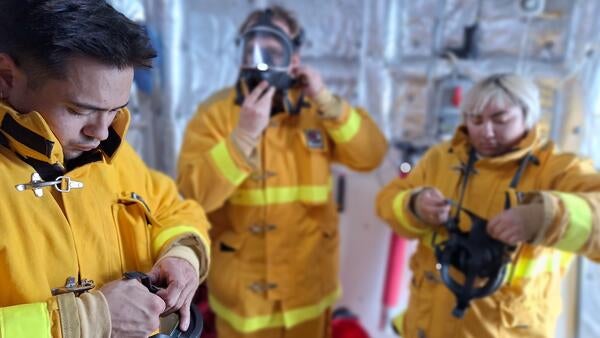
The primary objective of this expedition was to sample broad-spectrum gas and particle emissions from various sources on the vessel, including the main engine, two auxiliary generators, and one steam boiler. The researchers conducted these measurements while the container ship was actively involved in shipping operations, transporting a diverse range of consumer and necessity goods.
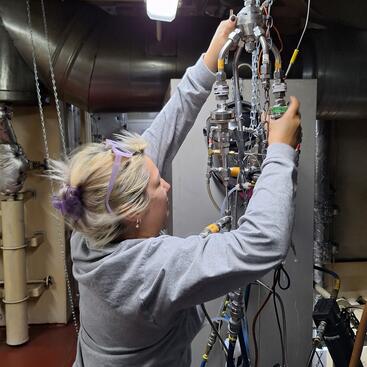
This field campaign played a crucial role in a comprehensive study aimed at evaluating the benefits and impacts of emerging marine engine technology, striving to advance sustainable practices within the maritime industry and reduce the production of key pollutants with significant environmental implications.
Beyond the scientific objectives, the researchers established lasting connections with the ship's crew, immersing themselves in the daily workings of the vessel. This involvement included adherence to strict safety protocols, active participation in safety drills, and comprehensive training on survival suits and fire suppression gear.
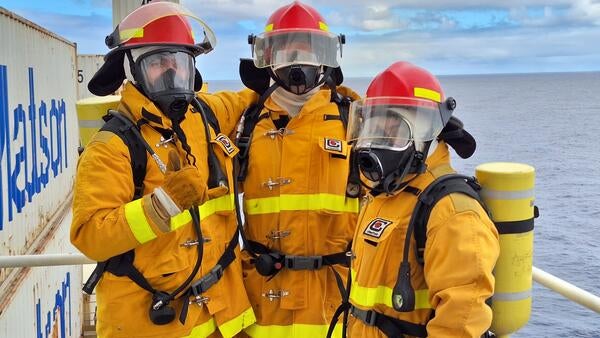
Integration into the ship's safety protocols not only ensured the well-being of the researchers but also enhanced the overall effectiveness of the field campaign. Engaging in drills prepared them for potential emergencies, offering valuable insights into the operational challenges and safety measures inherent in maritime activities.
Armed with newfound knowledge, the team successfully conducted their sampling mission, collecting data from real-time sensors and some samples that will be analyzed with advanced analytical equipment back at CE-CERT. The insights gained will significantly contribute to ongoing efforts to develop and implement sustainable marine engine technologies.
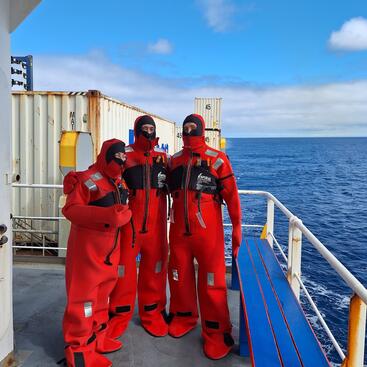
Upon completion of the field campaign, the researchers enjoyed three days in Hawaii, not only to ship back equipment but also for a well-deserved break. Taking in the local sights and cuisine, the team not only contributed to important research but also experienced the cultural and natural beauty of Hawaii.
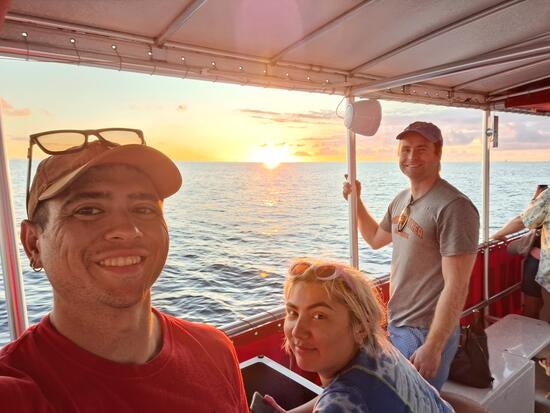
The October field campaign represented more than just a voyage; it marked a significant step forward in understanding and mitigating the environmental impact of ocean-going vessels. Through collaboration with the ship's crew, adherence to safety protocols, and in-depth sampling, the researchers contributed valuable data to ongoing efforts, shaping a cleaner and greener future for our oceans as marine engine technology continues to evolve.